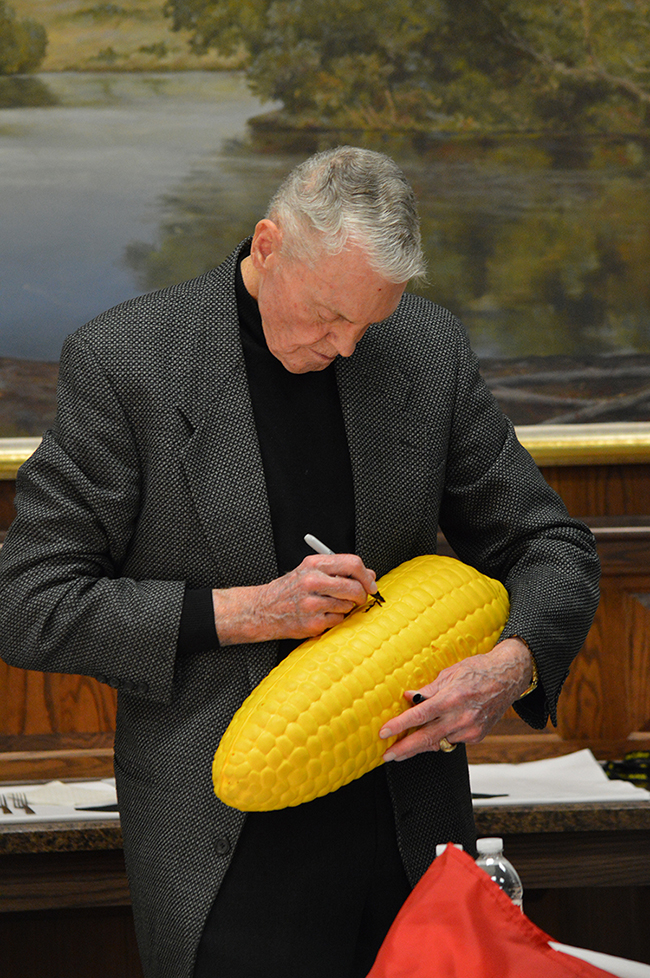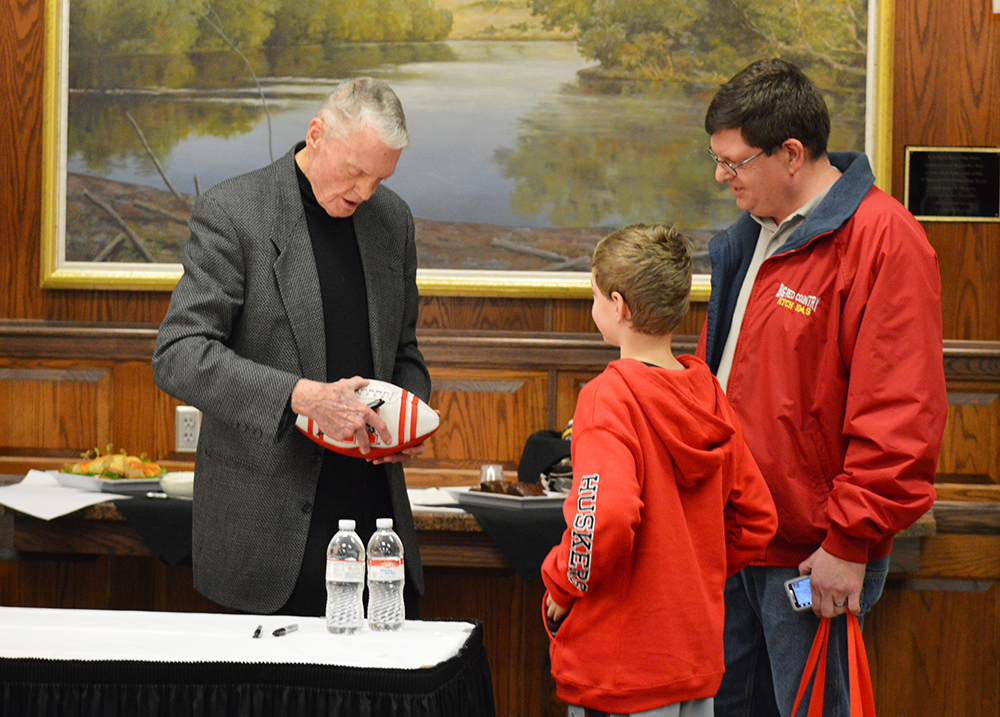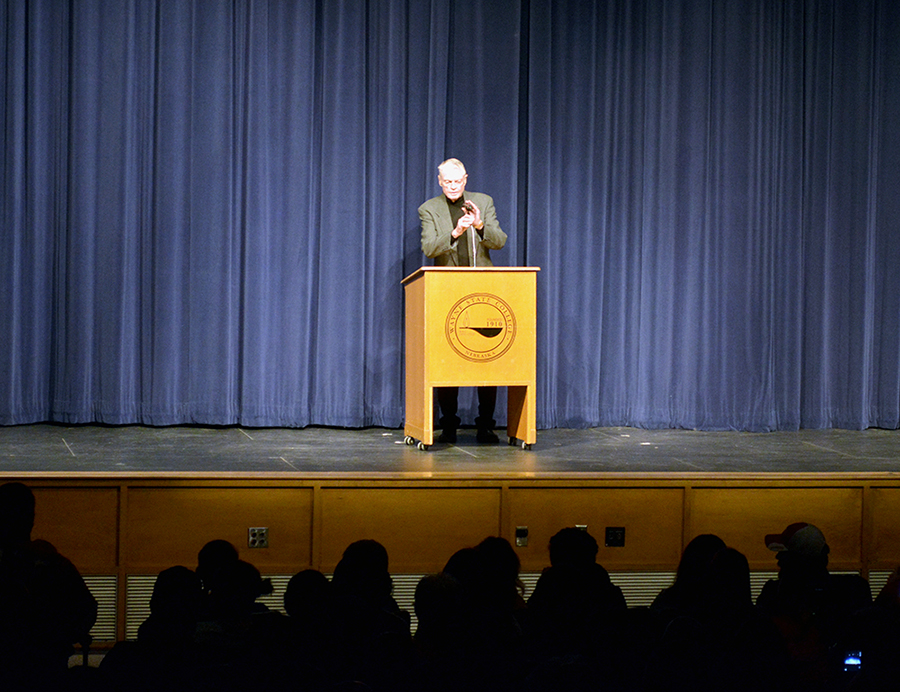Husker legend offers leadership lessons
February 1, 2017
Dr. Tom Osborne, legendary Cornhusker head football coach, outlined the keys to leadership and success during a presentation at Ramsey Theatre on Sunday night.
Osborne talked about the process he used as a leader at Nebraska, how it led to the program’s success and how anyone can apply it to his or her life.
Success is an understatement to describe much of Nebraska football’s history. From 1962-2003, the Huskers won 82 percent of their games. The next best team in college football during that timespan was Ohio State, which won 75 percent of its games.
Osborne said that the process of winning at Nebraska started with his predecessor, Bob Devaney. That first key to success is character.
“I really like what he said about character,” said Dylan Kaup, a student who attended the presentation. “It is what you do when no one is watching.”
When Osborne and his coaches recruited players, they focused on their character more than anything else. They watched carefully how they treated their parents, and they talked to their coaches and even their teachers to learn about a recruit’s true character.
Osborne said that way they were bringing in players who were not only talented, but would also be good teammates, good students, easy to coach and would not be selfish. It was that way that Devaney and then Osborne were able to produce such successful football teams in a state with a small population and without many four-and five-star recruits.
“When recruiting players we promised only one thing: an opportunity,” Osborne said.
Osborne said the next key to success is integrity. He mentioned that honesty is vital to the chemistry of a successful team.
“I liked how they recruited players,” Kaup said. “They didn’t make empty promises. They sent a message that resonated with guys who were willing to work hard and contribute to team success.”
Another key that led to the success at Nebraska was the positive atmosphere that Osborne and his coaches created.
“Always being hard on people and creating a harsh environment isn’t the best way to get the most out people. Instead, people feed off of positivity,” Osborne said.
Of course, Osborne said he was tough on people when he had to be, but he would rather point out their success to motivate.
Osborne also created a positive environment by making sure he knew each player at a personal level.
While his players were in the weight room, Osborne went around and talked to several players each day. They didn’t just talk about football; instead, anything about life. That way Osborne and his staff could become more connected with their players and to leadership and success is how you deal with adversity, and a lot of dealing with adversity goes back to someone’s character.
Osborne is a proven leader. After taking over for Bob Devaney in 1973, Osborne went on to coach for 25 years. He finished with a record of 255-49-3 with 13 conference championships and three national championships in 1994, 1995, and 1997.
Before coaching, Osborne was a three-sport athlete in both high school (Hastings) and college (Hastings). He was a state champion in the discus throw in high school. He was drafted by the San Francisco 49ers, but never saw action. Osborne played for the Washington Redskins before beginning his coaching career in 1964.

Tom Osborne autographs a Husker hat before his presentation.

Tom Osborne signs autographs for fans before his talk on leadership on Sunday night. Osborne was a football coach for the University of Nebraska-Lincoln for 25 years, finishing with a 255-49-3 record and three national championships.









